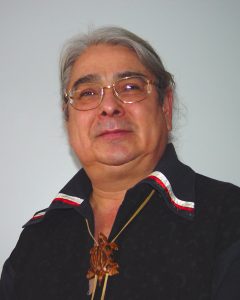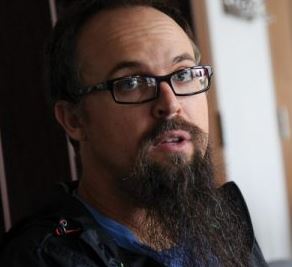|
Indigenous Approaches to Team Science
This panel will discuss the different roles that collaboration plays in Indigenous responses to complex, socio-environmental problems in Canada and the US.

Henry Lickers
Mohawk Council of Akwesasne
|
Henry Lickers is a member of Seneca Nation, Turtle Clan. He has been married for 47 years and has three grown children. He has been the Director of the Mohawk Council of Akwesasne, Department of the Environment for 33 years and is now the Environmental Science Officer the past 6 years. During this time, he has been principle investigator on the EAGLE (Effects on Aboriginals in the Great Lakes Environment) Project and the Naturalized Knowledge Systems Project and the First Nation’s Community Health Indicators Project, all of these projects are investigating First Nations Environmental issues. He was also one of the contributors to the First Nation Environment Assessment Toolkit for Ontario, Chiefs of Ontario.
|
Jimmie Mitchell
Little River Band of Ottawa Indians
|
Jimmie has actively served on the Board of the Chippewa Ottawa Resource Authority since 2003. He has focused his attention on protecting the environment and also Tribal Rights secured in the Treaty of 1836 and since, reaffirmed in the 2000 and 2007 Consent Decrees, respectively.His involvement during the contentious Inland phase of the landmark US v Michigan court case, was instrumental in convincing the parties to negotiate the case out of court. The results of this painstaking effort served to reaffirm the existence of Inland Hunting, Fishing and Gathering Rights, within the boundaries of the 13.8 million acre Ceded Territory and also, garnered Co-management rights and obligations outlined and secured within the 2007 Decree. He currently serves as an appointed representative on the Midwest Region Tribal Interior Budget Committee which is aimed to provide tribal guidance to insure the Trust Responsibilities of the United States to Tribal Nations are realized and incorporated into the President's Budget. On behalf of his Tribal Nation, the Little River Band of Ottawa Indians he is the Director of Natural Resources and is one of their Traditional Carriers of the Sacred Pipe. He is also an active member of Maaingun Dodem, (Wolf clan), he was born in Muskegon, Michigan, has traveled extensively throughout the world and now lives in Manistee with his family in a remote corner of 1836 reservation.
|

Dr. Kyle Whyte
Michigan State University
|
Kyle Whyte, Ph.D., is a professor and environmental activist working at Michigan State University. He focuses on teaching and research on #NoDAPL and Indigenous climate justice, and places where you can follow my updates. Whyte specifically focuses on the problems and possibilities Indigenous peoples face regarding climate change, environmental justice, and food sovereignty. He participates in a variety of programs at Michigan State University that include Philosophy, Community Sustainability, American Indian & Indigenous Studies, Environmental Science & Policy, Environmental Philosophy & Ethics and the Geocognition Research Lab.
|
|


